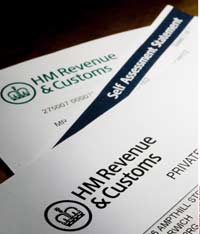Get trading status right to minimise tax bill

A renewable energy project could alter the trading status of a farm business and end up in a hefty tax bill. Alex Keenan of Roythornes solicitors offers some advice on how to not get caught out
The prospect of long-term income returns from renewable energy may be very appealing, but choosing the wrong business structure for the project can risk throwing away any gains to unnecessary tax charges.
While there is no substitute for professional advice, you should begin by giving the following areas some thought.
Trading status
For public policy reasons successive governments have given preferential tax treatments to trading businesses, but denied them to businesses that simply hold investments. The rationale is that trading businesses are work generative, as well as turning cash over in the economy.
Investment businesses however, simply channel money into the hands of their owners, with no guarantee that it will be fed back into the wider economy. It was also seen as a bad thing to force family businesses to be broken up and sold in order to pay tax.
Trading status therefore is critical to both entrepreneurs’ relief for capital gains tax and business property relief for inheritance tax.
For business property relief, the relief is denied to businesses that consist “wholly or mainly” in making or holding investments. What is at stake is a reduction of the hypothetical value of the assets covered for the purposes of inheritance tax by either 50% or 100%. This can potentially take some very valuable assets completely outside the scope of a tax that is levied at 40%. On a £1m trading business, this relief is worth up to £400,000.
Business property relief is also denied on property subject to a binding contract for sale. This can cause some consternation in renewables projects as they often involve option agreements. It is clear however that option agreements are not a binding contract for sale and this denial of relief will not be relevant to property under option except in the most unusual circumstances.
Where an option to take a lease has been exercised, this will also not constitute a binding contract for sale. However, once the lease is in place you must seriously consider the balance between trading and investment in your business, because taking a rent from land is a fairly clear cut example of the latter.
The danger with renewables projects is that they risk changing the nature of your business from a trading business to one that is “mainly” an investment business. This is disastrous for business property relief as it is an all or nothing relief, applying to the business as a whole.
Renewables projects are particularly vulnerable when structured through a lease, because, as mentioned earlier, there is no clearer investment than simply renting land out for a return.
If your business is deemed to be an investment business you will lose relief not simply over the investment assets but over the business as a whole, even if there is a perfectly valid trade going on alongside the investment activity. So by signing up to a turbine site lease for example, you may be unwittingly costing yourself the benefit of business property relief over your whole business.
If the size of the renewable project relative to the main farming business is appropriate, keeping them together will be the best course of action and the business as a whole will attract business property relief.
In deciding the character of a business vis-à-vis trading or investment, the situation must be considered in the round, taking into account profitability, expenditure of time and capital and levels of turnover. There is a lot of case law that considers this issue, including the recent high profile case of Brander. However, as no single factor is decisive, it remains a judgement call; if you’re worried, ask your advisor.
A possible spectre raised by Brander was that courts may begin to look through separately structured businesses and take a “real world” view on whether they are really independent. If they are not, the whole operation will be assessed as one for the trading business test.
Entrepreneurs’ relief
For entrepreneurs’ relief the requirements are that the assets disposed of not be held as investments. This means that a trading business can be disposed of as a whole even if it contains some elements that would, on their own be classed as investments. If you have a Feed-in Tariff contract over an installation on a barn roof in a dairy yard, and you sold off the dairying operation en-bloc, the solar installation and the benefit of the FiT could be bundled in with the business and attract relief, provided it is owned within the business. The possible benefit is a tax rate of 10% as opposed to 28%.
If you are worried about trading status, it is quite possible to hive off your renewables operation into a separate business, but you need to think carefully about the costs and benefits (including the administrative burden) of doing so.
